EDGE22 Symposium Recordings

Mapping the Future of PALTC
EDGE22 was held October 28, 2022. Register here for recorded access to all sessions!
Overview
Applicable to everyone who works in the PALTC setting, the 2022 EDGE Virtual Symposium covers controversial and cutting edge issues facing practitioners throughout the PALTC continuum. EDGE explores practical approaches to "mapping the future" of the PALTC system through engaging lectures, panel discussions, and facilitated small group interaction. Attendees leave with practical takeaways they can apply to their practices.
Learning Objectives
Through this program, participants should be able to:
- Incorporate innovative and thoughtful solutions and best practices to current and emerging leadership and ethical issues in your practice
- Distinguish between the principles of leadership and management and the role each plays in facilitating the work of the interdisciplinary team
- Identify ethical situations or conflicts, and apply the tenets of medical ethics, in routine and uncommon clinical encounters
- Describe the various perspectives, including legal, technological, medical, and cultural that must be considered to provide holistic patient care
- Explain to your patients and their families the benefits and limitations of psychotherapy in treatment
- Effectively discuss the potential use of alternative treatments, their evidence-base, safety, and effectiveness with your clinical team and administrators.
Sessions
| Description |
|---|
| PALTC Leadership & Advocacy: The Drumbeat for Quality in Nursing Homes This session will feature a panel to discuss the call for nursing home reform that has been highlighted in the recent report from the National Academies of Science. The panel will review recommendations in the report, as well as highlights from the February issue of JAMDA and the Moving Forward Initiative. The stakeholders and areas of consensus and divergence will be discussed, as well as how AMDA’S advocacy work bridges diverse groups. Finally, it will provide a succinct overview of PALTC advocacy with tips on how, when, and where to communicate with local and national policy leaders to be most effective. Speakers: Alex Bardakh, MPP; Alice Bonner, PhD, RN, GNP; Anne Montgomery, BA, MS; Philip Sloane, MD, MPH; Faith Wiggins |
| Collision of Crises: Addressing Diversity, Equity, & Inclusion's Intersection with our PALTC Careforce Challenges Work with our panel of experts to develop a SWOT analysis of PALTC as we take a deeper dive into the intersection of diversity, equity and inclusion and Careforce supply and development. Participate in small group discussions around real-life case scenarios and come away with ideas to take advantage of opportunities as well as strategize how to handle threats you see facing PALTC. Speakers: Rajeev Kumar, MD, FACP, CMD; Jasmine Travers, PhD, MHS, RN, AGPCNP-BC; Elizabeth White, PhD, APRN Moderator: Diane Sanders-Cepeda, DO, CMD |
| To GDR or to Not GDR – That Is the Five Star Question! Gradual Dose Reductions have been a focus in Long-Term Care for many years, but when does it do more harm to the patient than good? The level of distress and mental health issues patients have experienced as well as psychotropic medication use has increased since the start of COVID-19. This workshop will focus on the regulations regarding use of antipsychotics and gradual dose reduction. In addition, to the recognized “appropriate” diagnoses for antipsychotic use, CMS recognizes many other major mental health conditions that also warrant use of antipsychotics and for which it may not be appropriate to GDR. Correctly documenting reasons a psychotropic medication is needed can decrease the number of pharmacy GDR requests received. Finally, the use and benefit of the interdisciplinary team meeting to address the use of psychotropic medications while focusing on meeting resident needs will be discussed. Speakers: Lea Watson, MD; Rick Foley, PharmD; Barbara Wise, MD Moderator: Deborah Theis, PhD |
| $#!t Happens! What Do We Do Now? —The Ethical and Legal Aspects of Medical Error in PALTC A medical error may be defined as a commission or omission of an action with potentially adverse consequences for the patient. Medical errors occur commonly in PALTC and may result in distress and discomfort among staff and clinicians in addition to potentially causing harm to residents. This session will explore the types and frequency of medical errors in PALTC, how to respond when medical error is identified and how to prevent subsequent errors. This session will also address questions and controversies around the legal and ethical aspects of disclosure of medical error as well as the incorporation of apology in that disclosure. Breakout groups will allow for small group discussion of these and other issues surrounding medical error in PALTC. Speakers: Nicole Brandt, PharmD, MBA; Katja Elbert-Avila, MD, MHS; Timothy Holahan, DO, CMD; Alan C. Horowitz, Esq., RN; Fatima Naqvi, MD, CMD Moderator: Robert A. Zorowitz, MD, MBA, CMD |
In the center of transformation, and at the edge of innovation resides robust debate. We invite you to get in the middle of multiple controversial topics and lead the discussion.
Debaters: Cari Levy, MD, PhD, CMD and Alexandria Hill, MSN, GERO RN-BC, RAC-CT, QCP, CMDP
Debaters: Allison Villegas, PA-C and Emily Nicoli, NP
Debaters: Joanne Lynn, MD, CMD and Daniel Haimowitz, MD, CMD |
Speakers
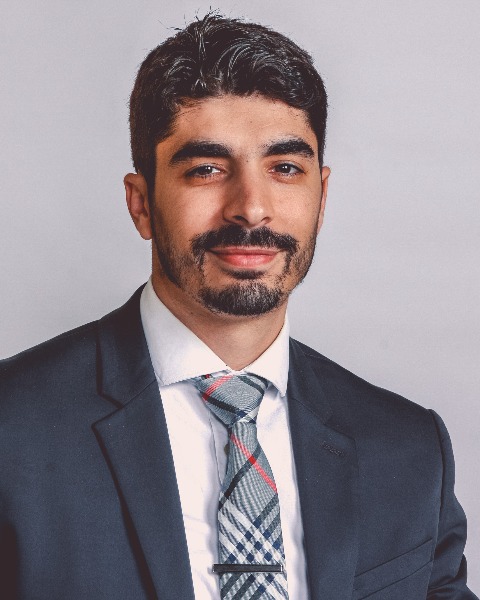 Alex Bardakh, MPP,
PLC, is the Director of Public Policy and Advocacy
for AMDA – The Society. Mr. Bardakh works for the Society’s extensive Public
Policy agenda through Advocacy in Congress and numerous Federal Agencies. A
graduate from the University of Maryland Baltimore County (UMBC) in Political
Science/Psychology and Master’s Degree in Public and Legal Policy, Mr. Bardakh
has extensive experience in health policy with a specific focus on areas such
as payment models and quality of care initiatives. He has been a recognized national
speaker on healthcare policy and has spoken at national conferences throughout
the country.
Alex Bardakh, MPP,
PLC, is the Director of Public Policy and Advocacy
for AMDA – The Society. Mr. Bardakh works for the Society’s extensive Public
Policy agenda through Advocacy in Congress and numerous Federal Agencies. A
graduate from the University of Maryland Baltimore County (UMBC) in Political
Science/Psychology and Master’s Degree in Public and Legal Policy, Mr. Bardakh
has extensive experience in health policy with a specific focus on areas such
as payment models and quality of care initiatives. He has been a recognized national
speaker on healthcare policy and has spoken at national conferences throughout
the country.
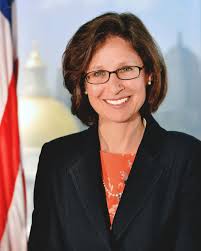 Alice Bonner, PhD,
RN, FAAN, has been a nurse practitioner
for over 30 years. She is currently Senior Advisor for Aging at the Institute
for Healthcare Improvement (IHI) and Chair of Moving Forward: Nursing Home
Quality Coalition. From 2015-2019, Bonner served as Secretary of the
Executive Office of Elder Affairs for the Commonwealth of Massachusetts. From
2011 to 2013, Dr. Bonner served as Director of the Division of Nursing Homes in
the Centers for Medicare and Medicaid Services (CMS) in Baltimore, MD.
Alice Bonner, PhD,
RN, FAAN, has been a nurse practitioner
for over 30 years. She is currently Senior Advisor for Aging at the Institute
for Healthcare Improvement (IHI) and Chair of Moving Forward: Nursing Home
Quality Coalition. From 2015-2019, Bonner served as Secretary of the
Executive Office of Elder Affairs for the Commonwealth of Massachusetts. From
2011 to 2013, Dr. Bonner served as Director of the Division of Nursing Homes in
the Centers for Medicare and Medicaid Services (CMS) in Baltimore, MD.
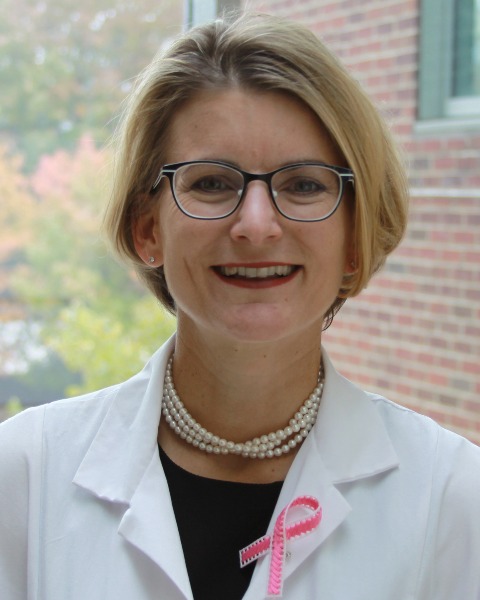 Nicole Brandt,
PharmD, is a professor in the
Department of Pharmacy Practice and Science and executive director of the Peter
Lamy Center on Drug Therapy and Aging. Since joining the University of Maryland
School of Pharmacy, she has expanded geriatric training opportunities
available, including the geriatrics/palliative care pathway, ASHP-accredited
geriatrics residency, and two-year post-PharmD fellowship. Dr. Brandt has been
active in promoting optimal care for older adults and has affected this through
her educational, clinical, as well as health care policy work. She is the past
president and board chairman of American Society of Consultant Pharmacists.
Nicole Brandt,
PharmD, is a professor in the
Department of Pharmacy Practice and Science and executive director of the Peter
Lamy Center on Drug Therapy and Aging. Since joining the University of Maryland
School of Pharmacy, she has expanded geriatric training opportunities
available, including the geriatrics/palliative care pathway, ASHP-accredited
geriatrics residency, and two-year post-PharmD fellowship. Dr. Brandt has been
active in promoting optimal care for older adults and has affected this through
her educational, clinical, as well as health care policy work. She is the past
president and board chairman of American Society of Consultant Pharmacists.
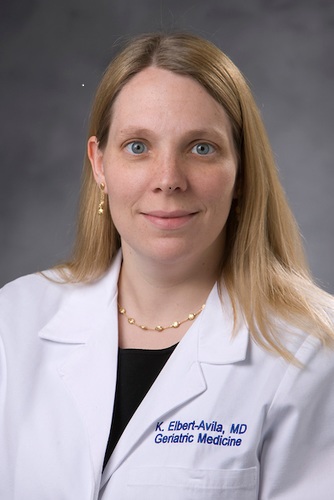 Katja Elbert-Avila
MD, MHS, is an Associate Professor of
Medicine at Duke University. She practices Geriatric Medicine at the Durham
Veterans Affairs Medical Center (DVAMC), where she serves as Medical Director
for the DVAMC Community Living Center and as a Clinical Ethics Consultant. She
is Associate Program Director for the Duke Geriatrics Medicine Fellowship
program.
Katja Elbert-Avila
MD, MHS, is an Associate Professor of
Medicine at Duke University. She practices Geriatric Medicine at the Durham
Veterans Affairs Medical Center (DVAMC), where she serves as Medical Director
for the DVAMC Community Living Center and as a Clinical Ethics Consultant. She
is Associate Program Director for the Duke Geriatrics Medicine Fellowship
program.
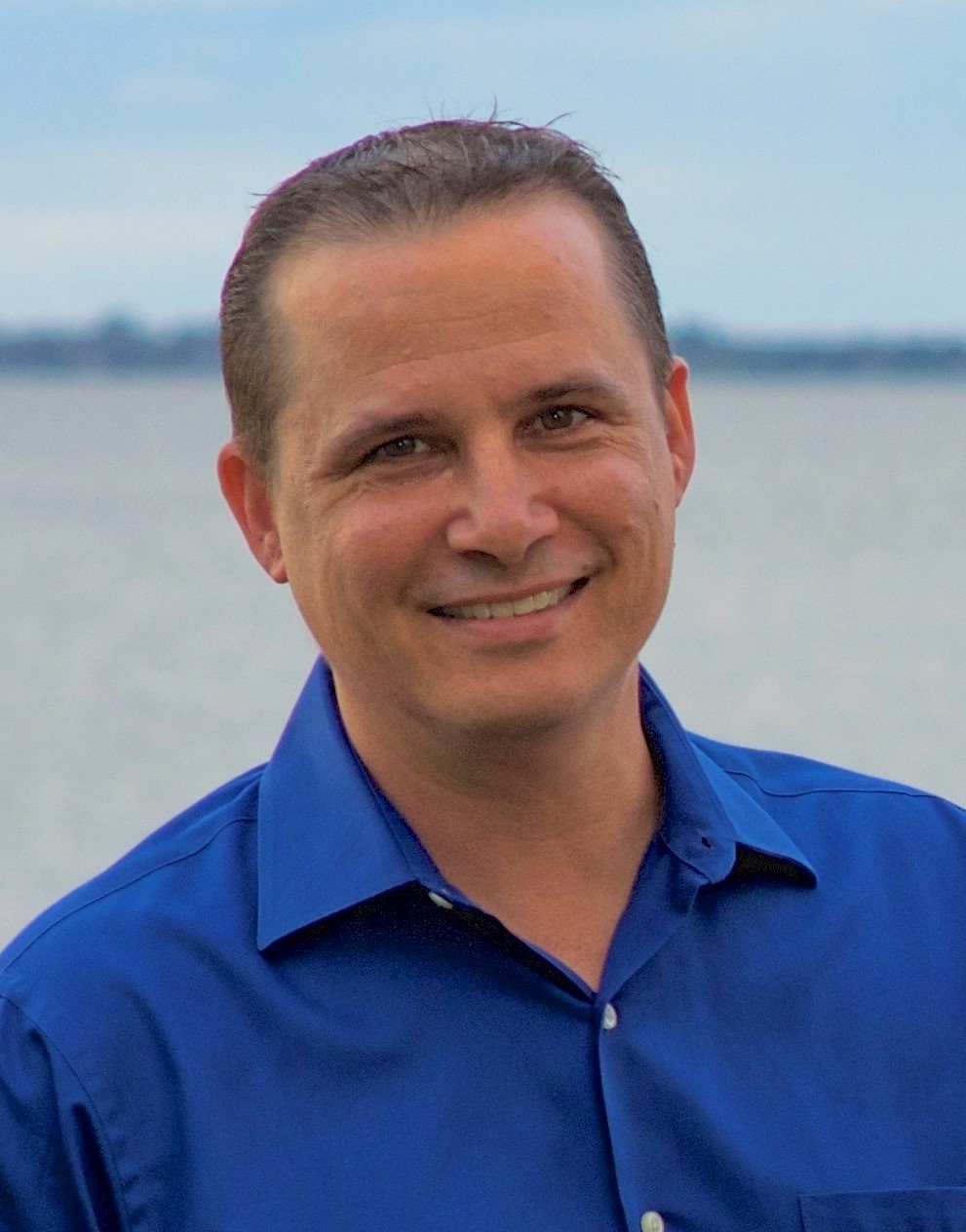 Rick
Foley, PharmD,
is a consultant pharmacist with CVS/Omnicare with over 30 years’ experience in
the post-acute long term care market. He
is board certified in Geriatrics and is a Fellow of the American Society of
Consultant Pharmacists. He served on the
Board of Directors for the Florida Society for Post-Acute and Long-Term Care
(FMDA) from 2016 to 2021. He was a clinical professor of Geriatrics at the UF
College of Pharmacy for 8 years. In 2021,
Dr. Foley was the first pharmacist recipient of the FMDA Quality Champion
award.
Rick
Foley, PharmD,
is a consultant pharmacist with CVS/Omnicare with over 30 years’ experience in
the post-acute long term care market. He
is board certified in Geriatrics and is a Fellow of the American Society of
Consultant Pharmacists. He served on the
Board of Directors for the Florida Society for Post-Acute and Long-Term Care
(FMDA) from 2016 to 2021. He was a clinical professor of Geriatrics at the UF
College of Pharmacy for 8 years. In 2021,
Dr. Foley was the first pharmacist recipient of the FMDA Quality Champion
award.
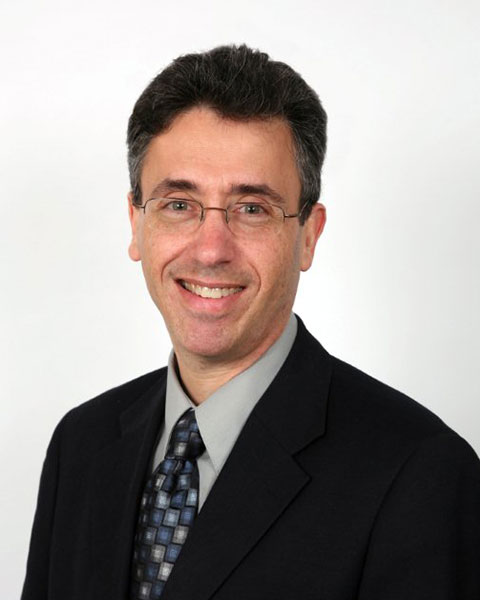 Daniel Haimowitz, MD, FACP, CMD, is an internist and geriatrician in solo private
practice outside of Philadelphia. He is a former president of his state AMDA
affiliate, prior AMDA board member and has chaired multiple committees. He is
also on the Editorial Board of Caring for the Ages.
Daniel Haimowitz, MD, FACP, CMD, is an internist and geriatrician in solo private
practice outside of Philadelphia. He is a former president of his state AMDA
affiliate, prior AMDA board member and has chaired multiple committees. He is
also on the Editorial Board of Caring for the Ages.
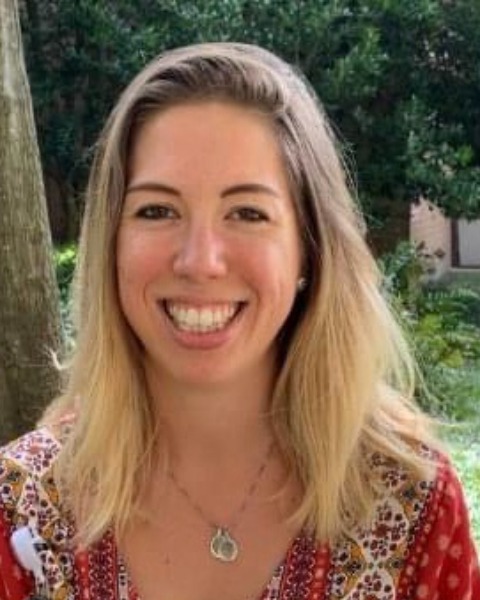 Alexandria Hill, MSN, RN-BC, RAC-CT, QCP, CMDP, is the Director of Quality Management at Westminster
Canterbury on Chesapeake Bay. Ms. Hill is also a regulatory compliance,
performance improvement, and leadership development consultant with Chiles
Healthcare Consulting, holds a Masters in Nursing Administration and Leadership
and is currently pursuing her Doctorate of Nursing Practice at Virginia
Commonwealth University. She began her career as a Licensed Practical Nurse and
uses this experience to fuel her passion for professional development, shared
governance, and interdisciplinary collaboration in PALTC.
Alexandria Hill, MSN, RN-BC, RAC-CT, QCP, CMDP, is the Director of Quality Management at Westminster
Canterbury on Chesapeake Bay. Ms. Hill is also a regulatory compliance,
performance improvement, and leadership development consultant with Chiles
Healthcare Consulting, holds a Masters in Nursing Administration and Leadership
and is currently pursuing her Doctorate of Nursing Practice at Virginia
Commonwealth University. She began her career as a Licensed Practical Nurse and
uses this experience to fuel her passion for professional development, shared
governance, and interdisciplinary collaboration in PALTC.
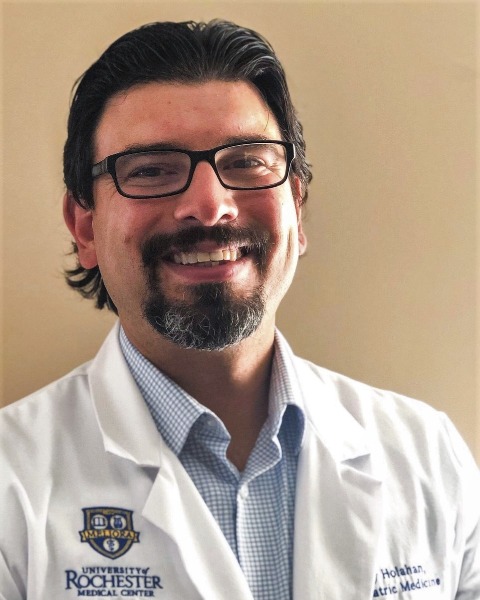 Timothy Holahan,
DO, CMD, is an Assistant Professor at
University of Rochester School of Medicine and Dentistry. He is Board Certified
in Internal Medicine, Geriatric Medicine and Palliative Care Medicine. He is
currently faculty at the University of Rochester School of Medicine and
Dentistry. He serves as Medical Director of multiple skilled nursing facilities
in the Rochester, NY area. Dr. Holahan also is currently the president of the
Finger Lakes Medical Directors Association and current board member for the New
York Medical Directors Association (NYMDA). Dr. Holahan currently serves as the
Vice Chair of the AMDA Ethics Committee. His passion is to deliver high quality
geriatric care in nursing homes and care for complex patients in the SNF
setting.
Timothy Holahan,
DO, CMD, is an Assistant Professor at
University of Rochester School of Medicine and Dentistry. He is Board Certified
in Internal Medicine, Geriatric Medicine and Palliative Care Medicine. He is
currently faculty at the University of Rochester School of Medicine and
Dentistry. He serves as Medical Director of multiple skilled nursing facilities
in the Rochester, NY area. Dr. Holahan also is currently the president of the
Finger Lakes Medical Directors Association and current board member for the New
York Medical Directors Association (NYMDA). Dr. Holahan currently serves as the
Vice Chair of the AMDA Ethics Committee. His passion is to deliver high quality
geriatric care in nursing homes and care for complex patients in the SNF
setting.
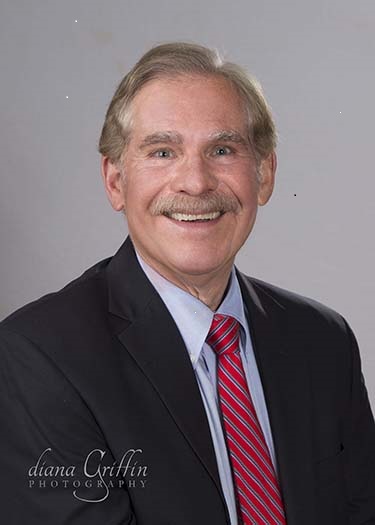 Alan Horowitz,
Esq., RN, is a partner at Arnall Golden
Gregory, LLP and focuses his health law practice on issues concerning skilled
nursing facilities, home health agencies and hospices. Before joining the firm,
Mr. Horowitz served as Assistant Regional Counsel at the United States
Department of Health and Human Services’ Office of the General Counsel. He
worked closely with and litigated cases on behalf of the Centers for Medicare
and Medicaid Services. He has litigated cases before the HHS Departmental
Appeal Board and the federal courts involving enforcement actions taken by CMS
as well as having worked with the U.S. Attorneys’ Office defending Medicare
coverage determinations and Federal Tort Claims Act cases.
Alan Horowitz,
Esq., RN, is a partner at Arnall Golden
Gregory, LLP and focuses his health law practice on issues concerning skilled
nursing facilities, home health agencies and hospices. Before joining the firm,
Mr. Horowitz served as Assistant Regional Counsel at the United States
Department of Health and Human Services’ Office of the General Counsel. He
worked closely with and litigated cases on behalf of the Centers for Medicare
and Medicaid Services. He has litigated cases before the HHS Departmental
Appeal Board and the federal courts involving enforcement actions taken by CMS
as well as having worked with the U.S. Attorneys’ Office defending Medicare
coverage determinations and Federal Tort Claims Act cases.
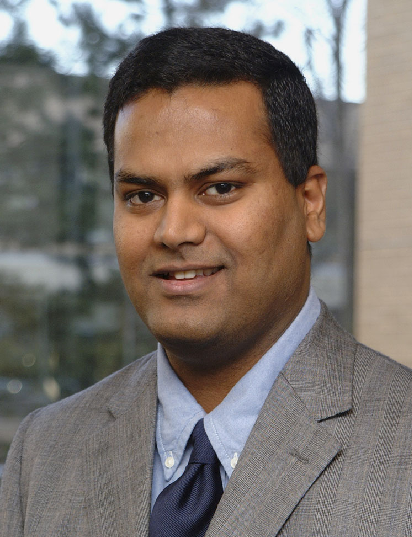 Rajeev Kumar, MD,
FACP, CMD, is the Chief Medical Officer
of Symbria and the managing partner of Midwest Geriatrics, a medical group in
Illinois who splits his time between administrative and clinical roles while
serving as a board member of AMDA and AMDA's delegate to AMA. He serves as a
medical director to two nursing facilities and a hospice program.
Rajeev Kumar, MD,
FACP, CMD, is the Chief Medical Officer
of Symbria and the managing partner of Midwest Geriatrics, a medical group in
Illinois who splits his time between administrative and clinical roles while
serving as a board member of AMDA and AMDA's delegate to AMA. He serves as a
medical director to two nursing facilities and a hospice program.
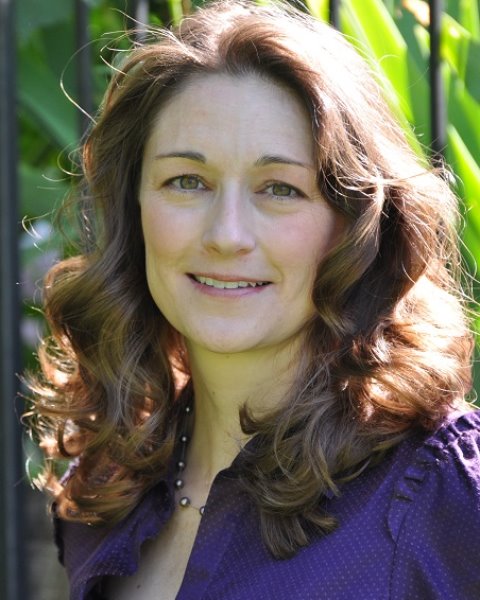 Cari Levy, MD, PhD, CMD, is a Professor of Medicine at the University of
Colorado Denver with board certification in Internal Medicine, Geriatrics and
Palliative Medicine. She graduated from Pepperdine University, received her
Medical Degree and PhD in health services research from the University of
Colorado Medical School and completed residency and a chief resident year at
Vanderbilt University. Dr. Levy is currently Director of the Denver–Seattle
Center for Veteran– Centered and Value–Driven Research and Section Chief of
Palliative Medicine at the Rocky Mountain Regional VA Medical Center. As a
health services researcher, she focuses her research on innovative models of
long-term care such. Dr. Levy has over 100 publications in peer-reviewed
journals based on this work.
Cari Levy, MD, PhD, CMD, is a Professor of Medicine at the University of
Colorado Denver with board certification in Internal Medicine, Geriatrics and
Palliative Medicine. She graduated from Pepperdine University, received her
Medical Degree and PhD in health services research from the University of
Colorado Medical School and completed residency and a chief resident year at
Vanderbilt University. Dr. Levy is currently Director of the Denver–Seattle
Center for Veteran– Centered and Value–Driven Research and Section Chief of
Palliative Medicine at the Rocky Mountain Regional VA Medical Center. As a
health services researcher, she focuses her research on innovative models of
long-term care such. Dr. Levy has over 100 publications in peer-reviewed
journals based on this work.
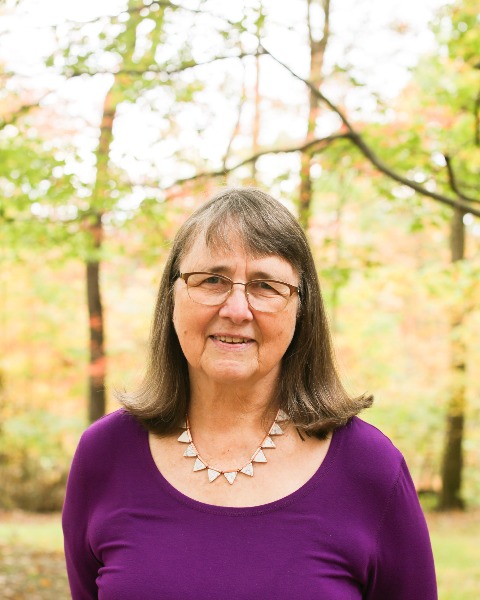 Joanne Lynn, MD, is
an experienced geriatrician, medical director, educator, quality improvement
coach, and researcher. She now works
half-time with Representative Tom Suozzi as a Health & Aging Policy Fellow
and also has been working on data production describing eldercare in counties
and evaluating how PACE programs responded to COVID-19. She was one of the first hospice physicians,
a tenured professor at Dartmouth and at George Washington, a medical officer in
the Center for Clinical Standards and Policy at CMS, and the Director of the
Bureau for Cancer and Chronic Disease in the public health office for
Washington DC.
Joanne Lynn, MD, is
an experienced geriatrician, medical director, educator, quality improvement
coach, and researcher. She now works
half-time with Representative Tom Suozzi as a Health & Aging Policy Fellow
and also has been working on data production describing eldercare in counties
and evaluating how PACE programs responded to COVID-19. She was one of the first hospice physicians,
a tenured professor at Dartmouth and at George Washington, a medical officer in
the Center for Clinical Standards and Policy at CMS, and the Director of the
Bureau for Cancer and Chronic Disease in the public health office for
Washington DC.
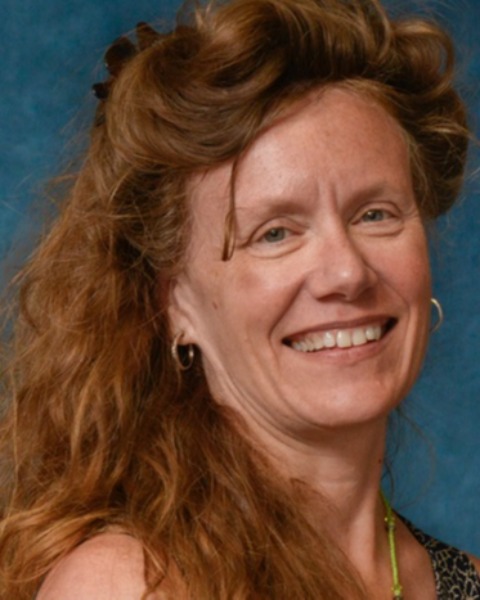 Anne Montgomery, BA, MS, develops policy and research initiatives that improve long-term services and supports medical care for older adults receiving services from Medicare, Medicaid, the Older Americans Act, and other programs. She is co-leading efforts to implement and evaluate comprehensive culture change and quality improvement in nursing homes and is working with colleagues to develop a new volunteer-based Community Care Corps program at the national level. Ms. Montgomery conducts workforce policy analysis for home and community-based services (HCBS) and advises on how to expand models of community-based care for older adults requiring complex services.
Anne Montgomery, BA, MS, develops policy and research initiatives that improve long-term services and supports medical care for older adults receiving services from Medicare, Medicaid, the Older Americans Act, and other programs. She is co-leading efforts to implement and evaluate comprehensive culture change and quality improvement in nursing homes and is working with colleagues to develop a new volunteer-based Community Care Corps program at the national level. Ms. Montgomery conducts workforce policy analysis for home and community-based services (HCBS) and advises on how to expand models of community-based care for older adults requiring complex services.
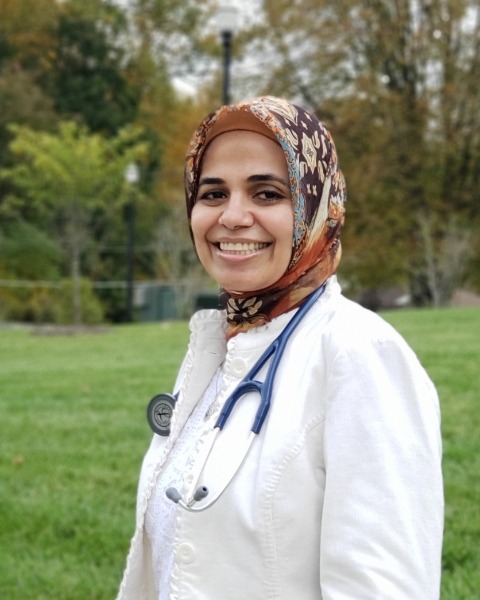 Fatima Naqvi, MD,
CMD, is currently working as a Hospice Medical
Director for Holy Cross Hospice and Home Care in Maryland. Dr. Naqvi is Board
Certified in Family Medicine, Geriatrics, Palliative and Hospice Medicine. She
is a MOLST Master Trainer. Her passion is to serve older adults and the staff
members at all levels who are caring for them. She enjoys learning and
teaching. She was appointed as Maryland Medical Director of the Year Award in
2019 by Mid-Atlantic Maryland Society. She received the Choosing Wisely
Campaign Award in 2019 for Antipsychotic medication reduction in multiple
facilities. Ethics Committee and Advance Care Planning Task team (Dr. Naqvi and
3 other MDs) published a 5-S CARE Plan Tool Kit and Documentation Guide. She is
a member of the Ethics Committee, Education Planning Committee, Policy and
Advocacy Policy Committee and Diversity Equity and Inclusion Committee.
Currently, she serves as a secretary at her local Chapter of AMDA. Dr. Naqvi's
passion is transformative leadership and avoiding Burnout as a physician
leader. She enjoys meditation, mindfulness and Yoga for work life balance.
Fatima Naqvi, MD,
CMD, is currently working as a Hospice Medical
Director for Holy Cross Hospice and Home Care in Maryland. Dr. Naqvi is Board
Certified in Family Medicine, Geriatrics, Palliative and Hospice Medicine. She
is a MOLST Master Trainer. Her passion is to serve older adults and the staff
members at all levels who are caring for them. She enjoys learning and
teaching. She was appointed as Maryland Medical Director of the Year Award in
2019 by Mid-Atlantic Maryland Society. She received the Choosing Wisely
Campaign Award in 2019 for Antipsychotic medication reduction in multiple
facilities. Ethics Committee and Advance Care Planning Task team (Dr. Naqvi and
3 other MDs) published a 5-S CARE Plan Tool Kit and Documentation Guide. She is
a member of the Ethics Committee, Education Planning Committee, Policy and
Advocacy Policy Committee and Diversity Equity and Inclusion Committee.
Currently, she serves as a secretary at her local Chapter of AMDA. Dr. Naqvi's
passion is transformative leadership and avoiding Burnout as a physician
leader. She enjoys meditation, mindfulness and Yoga for work life balance.
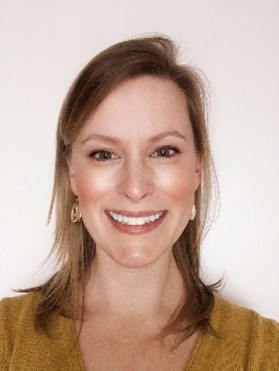 Emily
Nicoli, CRNP, is
the chief nursing officer for UnitedHealthcare Retiree Solutions who
specializes in serving the retiree health care needs of employer groups. Ms.
Nicoli leads the clinical team in the areas of clinical quality, clinical
program oversight, and the development of customized initiatives to improve
retiree outcomes and meet client specific goals. She works collaboratively with
employers and plan sponsor groups nationally to address quality and
affordability for their retirees. Ms. Nicoli is a nurse practitioner
board-certified in Adult/Gerontology as well as Hospice and Palliative Care
with over 10 years’ experience in healthcare. She has an extensive background
in the care of older adults as well as a deep knowledge base on risk adjustment
and Star measures and she has been with UnitedHealthcare since 2016 and
previously worked for Optum in clinical leadership roles.
Emily
Nicoli, CRNP, is
the chief nursing officer for UnitedHealthcare Retiree Solutions who
specializes in serving the retiree health care needs of employer groups. Ms.
Nicoli leads the clinical team in the areas of clinical quality, clinical
program oversight, and the development of customized initiatives to improve
retiree outcomes and meet client specific goals. She works collaboratively with
employers and plan sponsor groups nationally to address quality and
affordability for their retirees. Ms. Nicoli is a nurse practitioner
board-certified in Adult/Gerontology as well as Hospice and Palliative Care
with over 10 years’ experience in healthcare. She has an extensive background
in the care of older adults as well as a deep knowledge base on risk adjustment
and Star measures and she has been with UnitedHealthcare since 2016 and
previously worked for Optum in clinical leadership roles.
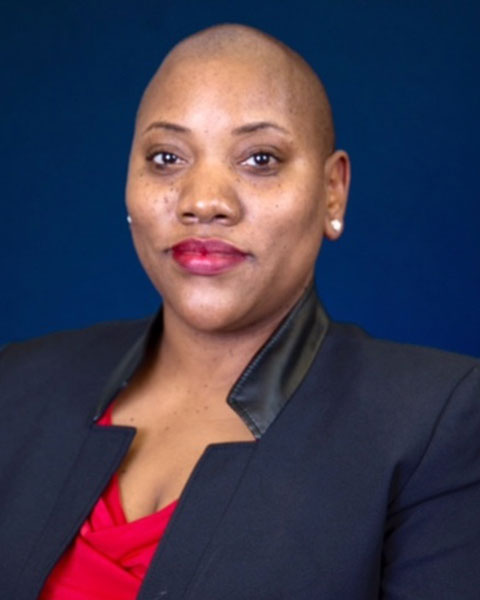 Diane
Sanders-Cepeda, DO, CMD, is a Senior
Medical Director with UnitedHealthcare Retiree Solutions. In this role, Dr.
Sanders-Cepeda provides oversight and direction for multiple clinical programs
and initiatives as well as creating and designing innovative solutions to meet
the demands of the retirees she serves. Dr. Sanders-Cepeda serves at a national
level and presents clinical results to private and public sector business
entities throughout the country. Dr. Sanders-Cepeda currently serves on the
AMDA Board of Directors and is President for her state chapter FMDA.
Diane
Sanders-Cepeda, DO, CMD, is a Senior
Medical Director with UnitedHealthcare Retiree Solutions. In this role, Dr.
Sanders-Cepeda provides oversight and direction for multiple clinical programs
and initiatives as well as creating and designing innovative solutions to meet
the demands of the retirees she serves. Dr. Sanders-Cepeda serves at a national
level and presents clinical results to private and public sector business
entities throughout the country. Dr. Sanders-Cepeda currently serves on the
AMDA Board of Directors and is President for her state chapter FMDA.
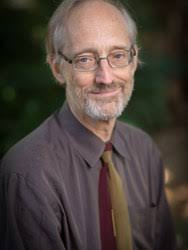 Philip Sloane, MD,
MPH, is the Elizabeth and Oscar Goodwin Distinguished
Professor, of Family Medicine, Associate, Chair for Academic Development, and
Co-Director of the Program on Aging, Disability, and Long Term Care, and Cecil
G. Sheps Center for Health Services Research at the University of North
Carolina-Chapel Hill. He is a nationally recognized geriatrician, the
co-editor-in-chief of JAMDA, and a member of the National Academies Task Force
on Nursing Home Quality of Care.
Philip Sloane, MD,
MPH, is the Elizabeth and Oscar Goodwin Distinguished
Professor, of Family Medicine, Associate, Chair for Academic Development, and
Co-Director of the Program on Aging, Disability, and Long Term Care, and Cecil
G. Sheps Center for Health Services Research at the University of North
Carolina-Chapel Hill. He is a nationally recognized geriatrician, the
co-editor-in-chief of JAMDA, and a member of the National Academies Task Force
on Nursing Home Quality of Care.
 Jasmine Travers, PhD, MHS, RN, AGPCNP-BC, is an assistant professor of nursing at NYU Rory Meyers College of Nursing. Her career is dedicated to designing and conducting research to improve health outcomes and reduce health disparities in vulnerable older adult groups using both quantitative and qualitative approaches. Her current work focuses on mitigating disparities in appropriate access and use of in-home and facility-based long-term care for older adults (i.e., home & community-based settings, nursing homes, and assisted living). Dr. Travers has published widely on the topics of aging, long-term care, health disparities, workforce diversity, vaccinations, and infections. She has presented her work at regional and national health services research, gerontological, nursing, and public health conferences and most recently sat on the National Academies of Science Engineering and Medicine Committee on the Quality of Care in Nursing Homes.
Jasmine Travers, PhD, MHS, RN, AGPCNP-BC, is an assistant professor of nursing at NYU Rory Meyers College of Nursing. Her career is dedicated to designing and conducting research to improve health outcomes and reduce health disparities in vulnerable older adult groups using both quantitative and qualitative approaches. Her current work focuses on mitigating disparities in appropriate access and use of in-home and facility-based long-term care for older adults (i.e., home & community-based settings, nursing homes, and assisted living). Dr. Travers has published widely on the topics of aging, long-term care, health disparities, workforce diversity, vaccinations, and infections. She has presented her work at regional and national health services research, gerontological, nursing, and public health conferences and most recently sat on the National Academies of Science Engineering and Medicine Committee on the Quality of Care in Nursing Homes.
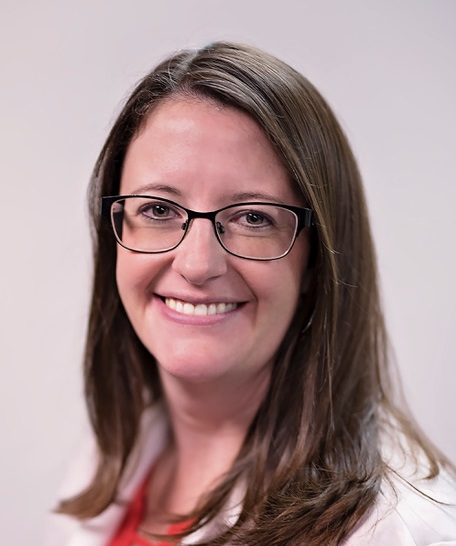 Allison
Villegas , PA-C, has been a Physician Assistant working in the PA/LTC setting
for the last nine years. She graduated from the University of Colorado Child
Health Associate/Physician Assistant Program. Ms. Villegas has served on the
AMDA Board of Directors Nominating Committee and she currently serves on the
Membership Committee, the Annual Program Committee, and the NP/PA Advisory
Council, where she serves as Vice Chair. She is on the board of directors for
her state chapter, CMDA: The Colorado Society for Post Acute and Long Term Care
Medicine.
Allison
Villegas , PA-C, has been a Physician Assistant working in the PA/LTC setting
for the last nine years. She graduated from the University of Colorado Child
Health Associate/Physician Assistant Program. Ms. Villegas has served on the
AMDA Board of Directors Nominating Committee and she currently serves on the
Membership Committee, the Annual Program Committee, and the NP/PA Advisory
Council, where she serves as Vice Chair. She is on the board of directors for
her state chapter, CMDA: The Colorado Society for Post Acute and Long Term Care
Medicine.
![]() Victoria Walker,
MD, CMD, FAAFP, is the Medical
and Clinical Officer for the Ave eCARE Senior Care telemedicine program. She
provides support and direction to an interdisciplinary team that supports
nursing home staff and residents of post-acute, long-term care and assisted
living in 24 states. Dr. Walker is also the Medical Director for Avera Health System Long Term Care and a Clinical professor of Family Medicine at the University of South Dakota Sanford School of Medicine. She currently
serves on the AMDA board of directors, the Clinical Issues Subcommittee of the
Public Policy Committee, the Telemedicine Workgroup and the Education workgroup
for the North Central Society of PALTC.
Victoria Walker,
MD, CMD, FAAFP, is the Medical
and Clinical Officer for the Ave eCARE Senior Care telemedicine program. She
provides support and direction to an interdisciplinary team that supports
nursing home staff and residents of post-acute, long-term care and assisted
living in 24 states. Dr. Walker is also the Medical Director for Avera Health System Long Term Care and a Clinical professor of Family Medicine at the University of South Dakota Sanford School of Medicine. She currently
serves on the AMDA board of directors, the Clinical Issues Subcommittee of the
Public Policy Committee, the Telemedicine Workgroup and the Education workgroup
for the North Central Society of PALTC.
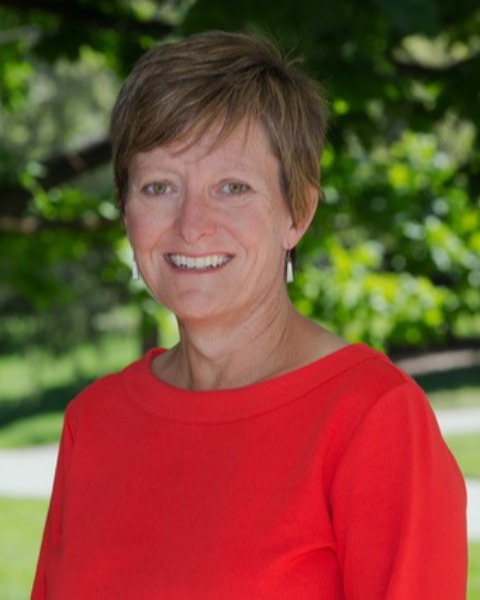 Lea Watson, MD,
MPH, is a geriatric psychiatrist and consultant to
the long-term care workforce on issues of behavioral health and psychopharmacology. Dr. Watson currently runs a highly acclaimed
Psychiatry Fellowship for LTC clinicians, providing practical and accessible
tools for non-psychiatrists. She also leads a Behavioral Health Integration
program for a large NH practice serving over 500
Lea Watson, MD,
MPH, is a geriatric psychiatrist and consultant to
the long-term care workforce on issues of behavioral health and psychopharmacology. Dr. Watson currently runs a highly acclaimed
Psychiatry Fellowship for LTC clinicians, providing practical and accessible
tools for non-psychiatrists. She also leads a Behavioral Health Integration
program for a large NH practice serving over 500